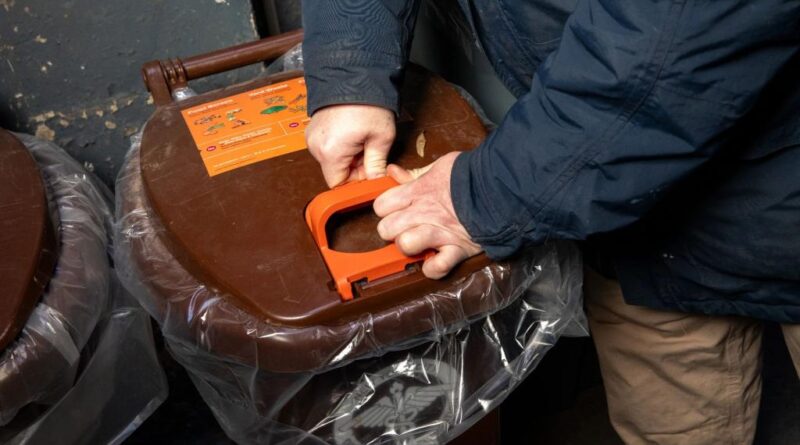The city should reconsider the flawed composting mandate.

Mandatory composting in New York City is a misguided idea that continues to resurface despite its negative impact on the daily lives of residents.
On Thursday, members of the City Council’s Common Sense Caucus introduced a proposal to eliminate the existing fines for not separating food scraps from regular waste.
Mayor Eric Adams announced the initiative in 2023 as part of his efforts to combat rat infestations, but fines were only imposed starting this month; within just the first ten days, the Sanitation Department issued nearly 2,500 tickets to property owners.
However, this regulation is not the key to eliminating rodents: The city has already required landlords to purchase new, secure $50 bins and has restricted the time trash can remain on the streets, minimizing opportunities for vermin to access containers the city claims are “rat-proof.”
This is primarily driven by environmentalists’ belief in composting as a strategy to reduce greenhouse gas emissions and the notion among “sanitation experts” that it could significantly cut waste heading to landfills.
Former Mayors Michael Bloomberg and Bill de Blasio attempted similar initiatives, both unsuccessful.
One key issue is that collecting and processing organic waste is costly, more than three times the expense of traditional garbage and recycling as of 2019.
Adams’ team argues that the new composting program is much cheaper for the city compared to previous efforts, yet it still imposes burdens on landlords and tenants.
Specifically, handling another waste stream (in addition to recycling paper, metal, and glass) demands time, effort, and space — a precious commodity in New York’s apartment kitchens.
Already, building supers are forced to wade through garbage bags on trash day, sifting out pizza boxes.
In 2022, New Yorkers recycled only about 17% of their waste, significantly lower than the 50% that could be achieved with perfect sorting.
Dealing with composting is an even bigger challenge. Exactly how much of their time and resources does the city expect New Yorkers to dedicate to waste management?
While those in suburbs or rural areas might view it as a useful pastime, it simply does not resonate with city dwellers.
This mandate leads to more supers dumpster-diving, more landlords facing unaffordable fines, and more frustrated tenants — without the promised reduction in rats.
Allow people the choice to compost, fine; mandating the entire city to compost is unrealistic and represents an example of excessive government interference.
It’s time to discard the flawed compost mandate.



